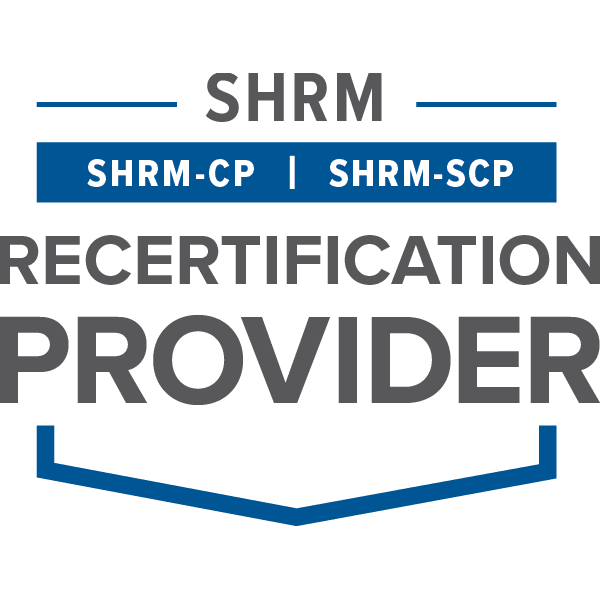What to Expect from Patient De-Escalation Training
Learn important de-escalation skills that can help you deal with stressful situations or a crisis in healthcare settings. PLA’s online training course includes:
- A basic sequence for de-escalating patients
- Effective tools for emotional self-management
- The psychology of escalated conflict
- How to attend to emotional patients confidently
- Body language and tone awareness skills
Course Description
Our asynchronous Healthcare De-escalation Training Workshop utilizes our industry-leading methods, which have been successfully taught and applied to participants in more than 60 industries around North America, from small retail shops to Fortune 100 companies.
Course Curriculum
- Overview of basic escalated conflict theory, psychology, and neurobiology
- Practical self-regulation and emotional self-management techniques
- Learn to put patient care before position or policy enforcement without eliminating policies
- Learn to utilize basic conflict psychology in de-escalating patient conflicts
- Reflective listening techniques
- How and when to implement reassurance during de-escalation
- How and when to use an apology effectively
- Using policy or rules explanation effectively
- Learning to open a space for collaboration with patients

Dr. Jeremy Pollack
Course Instructor
Dr. Jeremy Pollack is a leader in the field of workplace conflict resolution and peacebuilding. He is the Founder of Pollack Peacebuilding Systems, an international conflict resolution consulting firm. Dr. Pollack coaches and trains executives and employees at a variety of levels and industries, from Fortune 500 companies to major non-profits. He has a Ph.D. in Psychology and an M.A. in Negotiation, Conflict Resolution, and Peacebuilding. Read more about Dr. Pollack HERE.
Healthcare professionals must deal with stressful situations on a daily basis, as they work with people who are suffering physically, emotionally, mentally, and financially. De escalation techniques can help healthcare workers avoid confrontations with patients and coworkers. In healthcare facilities such as hospitals, doctors’ offices, and mental health facilities, healthcare professionals can benefit immensely by learning de escalation techniques.
Why Healthcare Professionals Need De Escalation Techniques
Violent behavior in healthcare facilities happens more often than you might guess if you have never worked in the healthcare industry. Preventing workplace violence should be part of the training of healthcare workers. De escalation training can prevent violence against healthcare staff as well as other patients.
Healthcare Professionals Can Prevent Physical Violence in the Workplace
Healthcare workers who interact directly with patients have a role in preventing patient violence. They should learn to use physical prevention strategies and de escalation skills if there is an immediate threat of violence against healthcare providers, other patients, or healthcare staff.
De Escalation Helps Healthcare Professionals Keep Everyone Safe
Conflict in healthcare facilities does not always escalate to the level of workplace violence. One reason that violent incidents are not more frequent than they are is that many healthcare workers have undergone de escalation training and are skilled in de escalation.
De Escalation Training for Healthcare Workers Is an Important Part of Emergency Response
In fields of healthcare that deal with crisis prevention and crisis response, conflict resolution and de escalation are vital job skills. When patients are at immediate risk of self-harm, one of the contributing factors to the outcome of the incident is the de escalation response that patients receive before or after they reach healthcare settings.
De Escalation in the Emergency Room
Emergency departments are more likely to be at the scene of physical aggression than outpatient clinics. Emergency physicians should receive de escalation training to learn to deal with workplace violence so that they can prevent injury to themselves and to other healthcare workers.
De Escalation Training for Healthcare Workers Protects Workers and Patients
Training for healthcare workers can and should include instruction on how to respond when agitated patients engage in aggressive behavior. De escalation training can help reduce potential violence and decrease the risk that doctors, nurses, and medical office staff will be physically assaulted on the job.
Keeping Patients Safe Is Your Mission, Even If You Are Scared
De escalation usually does not require you to make physical contact with patients when they are behaving aggressively. In fact, physical contact should be used only as a last resort. When patients are struggling with self-regulation, you can use effective communication and verbal de escalation to prevent the situation from escalating into a violent confrontation. In de escalation training for healthcare workers, you will learn to set clear limits consistently to create an environment where there are safeguards against physical confrontation.
De Escalation Training for Healthcare Workers in Residential Care Facilities
Anxiety, which can manifest itself as irritable or aggressive behavior is a symptom of some neurological conditions recognized by the American College of Neuropsychopharmacology. Nurses and other staff may encounter patients suffering from these conditions in a hospital setting, but the contact between a patient and a staff member is more frequent and prolonged in residential care settings such as nursing homes. Therefore, to increase their safety and reduce their risk of harm, employees in nursing homes should learn de escalation techniques and apply them in practice.
Preventing Violence Against Nurses and Patients in Nursing Homes
Employees in emergency departments have brief interactions with people at their worst moments, which requires one approach to de escalation, but employees in nursing homes have to manage conflicts that have been brewing for a long time, which requires another approach to de escalation. De escalation training for nursing home employees can help you ensure the safety of every person in the nursing home, whether the person is a patient or one of the nurses. This training can help you get a sense of how to deal with potentially dangerous behaviors without having to frantically search for solutions on a case-by-case basis.
Too often, nurses in nursing homes with limited resources resort to desperate measures, such as restraint and overmedicating residents to keep them calm. When this happens, management and physicians may look the other way or even encourage the nurses to engage in these techniques. This practice does not serve to further the safety or the treatment goals of the people whose care is entrusted to the nursing home. De escalation is much more in the interest of patient and staff safety.
How to Assess the De Escalation Strategy in Your Organization
Do not wait until a patient injures an employee or another patient at your hospital, clinic, or residential care facility before you start thinking seriously about your workplace’s approach to de escalation. If you start asking the nurses and other personnel at your workplace about their biggest concerns about their jobs, they will probably express a fear of violence. De escalation training can help assuage their fears and give them strategies for implementation in the face of critical situations.
Is the Safety and Security of Nurses at Your Facility at Risk?
Many nurses face verbal aggression from patients. Because of several factors, they tend to see it as all in a day’s work. If a patient says unkind words to a nurse, it is usually nothing personal. It is usually because the person is in pain and scared to be in a hospital away from his or her family. Every nurse learns this during practical training. It is unacceptable, however, if a patient threatens the nurse’s safety by promising to follow the nurse home from the hospital or search for the location of the nurse’s house. The hospital should have a system to protect the safety of employees so that people they meet at work cannot search for them outside the workplace.
Communication Is Better Than Physical Restraint
It is not necessarily a crisis every time someone undergoing treatment at your facility gets agitated. If you call security at the first sign of trouble, this can make it harder for the person to calm down, and treating the situation as a crisis can become a self-fulfilling prophecy. Physical restraint should rarely be used in hospitals and medical facilities. Effective crisis management is almost always a better solution.
De Escalation Training for Your Healthcare Business Is Within Reach
People who work at hospitals and other healthcare institutions should not have to fear for their safety or the safety of the beneficiaries of their services. De Escalation Training benefits everyone who works at a hospital or seeks treatment there. The conflict situations that you encounter in a hospital or medical clinic are unique to your practice, and your de escalation training should be, too. The Peaceful Leaders Academy provides training courses specific to the de escalation of situations in the medical profession.
What Do Healthcare Personnel Learn at a Peaceful Leaders Academy Training Workshop?
To find the best de escalation training program for your place of business, visit the Peaceful Leaders Academy website and find out more about our course offerings in terms of de escalation training for healthcare workers. You will find training courses, coaching programs, and workshops for every aspect of your business.
At a PLA workshop, your employees will learn to de escalate common situations that they encounter in their work. Whether they are dealing with people’s reactions to unaffordable medical bills or to scary health news, they will learn effective techniques for preventing violence and ensuring that everyone in the work environment stays safe.
How Do Peaceful Leaders Academy Training Programs Work?
Peaceful Leaders Academy offers an array of trainings to meet the needs of everyone in the healthcare industry. Some training events take place entirely online, in a synchronous or asynchronous format. If you prefer, we can meet you in your city for an in-person workshop full of interactive exercises to help your employees build confidence in their ability to de escalate potentially dangerous situations.
Contact Peaceful Leaders Academy Today
Course Details
Learn to de-escalate individuals while attending to people’s psychological needs and regulating your own emotions.
Course Provider
Industries Served
PLA is recognized by the Society for Human Resource Management
to offer Professional Development Credits (PDCs) for SHRM-CP® or SHRM-SCP® recertification activities.











